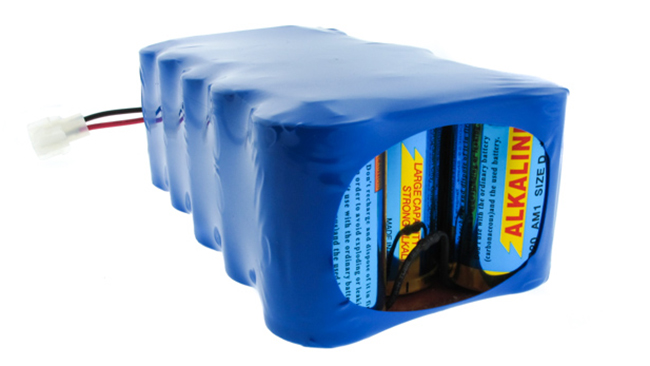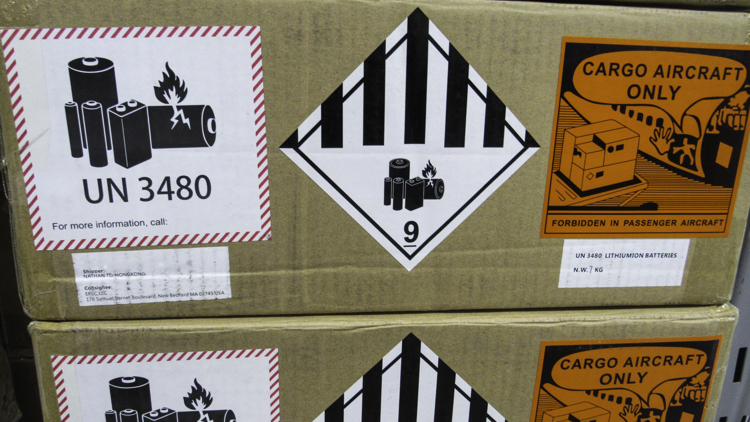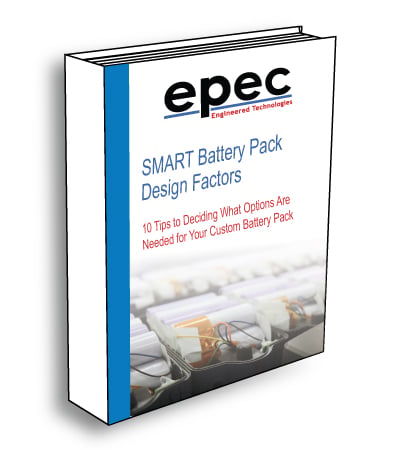
Battery Certifications: Mandatory, Optional, & The Unknown By Anton Beck, Battery Product Manager Epec Engineered Technologies
When developing a new battery pack, a common question asked by customers is: “What certifications will I need?” This question has many variables that need to be factored in from the customer level to determine what will be required. Each project is unique. There is no generic, one-size-fits-all answer. But we do have all of the information that you will need, with this blog post, Battery Pack Certifications: What They Are, What They Cost, How Long Do They Take?
Battery Chemistry Selection: Lithium, Ni-MH, Lead Acid
Chemistry Selection will have some bearing on certifications. For example, all lithium-based products are required by law to perform the DOT UN38.3 transportation certification to manage shipping of the battery. The testing will be performed by a certification agency to verify the battery construction is safe and passes all the required shipping standards. There are global options for these certification agencies that can be managed by your battery assembler.
Other chemistries such as nickel metal hydride, nickel cadmium, alkaline, and lead acid are not required to have the UN38.3 cert. These chemistries can be shipped globally without restrictions.
 Battery pack manufactured with alkaline cells.
Battery pack manufactured with alkaline cells.
UN38.3 Transportation Certification For Lithium
While lithium-based chemistry is the preferred choice because of its light weight and highest energy density, there are also limitations on how large the battery can be designed. At present, the watt hour limitation for shipping a lithium battery to manage shipping under the class 9 dangerous goods is 100-watt hours, and there are restrictions on packaging.
If you are considering lithium as your targeted chemistry, you will need to have IATA certification to understand how to manage and package, and for all the labeling required for lithium batteries.
Intended Markets
Where you intend to market your product should also be considered. There are multiple global certifications for various countries, some of which need to have the testing and certifications completed in those specific origins. If your product is intended to be marketed as a consumer product, you most likely will want UL certification as the minimum. In Canada, CSA certification; in Europe, IEC certification. These types of certification are not limited to lithium-based chemistries.
If your end product will be certified, it is likely the battery will need to follow that certification path. In many cases, the battery can also be included in the product certification and would allow you to include having the battery certified during the product certification. You’d need to consult with the regulatory agency that would perform the certification to determine what can and cannot be included.
If multiple certifications are going to be required on your product, it is also advantageous to know that in the development process. Some certifications need to be done sequentially, while some can be done laterally. In doing so, the sample qualities can be reduced to utilize the sample submissions between the different testing segments.
This could be a substantial savings as some of the testing requires multiple samples. Depending on the design, these samples are typically a higher cost point as you are still in the development stages of the battery producing smaller lot sizes to get through the certification steps.
Shipping Your End Product
Another frequently asked question is regarding certifications required when shipping a lithium battery installed in the intended device. This is all relative on how you intend to manage the battery after receiving from your supplier. If the battery is intended to be installed in the device and shipped under the classification of “battery in device,” the regulations are not as stringent and more around the basic packaging and labeling required.
There is a directive to ensure the battery is not actually on during the shipping process, which can be accomplished with an electrical device switch (on/off), or as you have seen on many lithium metal (coin cell) devices a plastic barrier that prevents contact and needs to be physically removed to make the battery connection after receiving.
 Example of labels for shipping lithium batteries.
Example of labels for shipping lithium batteries.
If the battery is UN38.3 certified by your supplier, and you intend to install the certified battery into some type of additional enclosure which would change the physical form factor of the battery, then it is the responsibility of the customer or CM performing the additional step to recertify the battery through the UN38.3 transportation certification process. The preferred approach is to have the battery supplier provide the battery in its final form factor with the UN38.3 transportation certification completed. However, sometimes this is not always possible depending on the customer process, CMs involved, etc.
If the battery will be shipped independently from the device, you will need to refer to the IATA guidelines regarding packaging, quantities allowed in box, weight, labeling, etc. It should be noted that if you intend to ship lithium batteries regardless if they have been pre-certified, your shipping division must have IATA certification. Your carrier will not process lithium shipments if your shipping department is not current on the required IATA certification.
The IATA certification is mandatory if you intend to ship lithium batteries (the training can be done online) and needs to be updated every two years. Your carrier would be able to provide all the information you need to obtain the IATA certification as well as what they require to avoid any violations.
Lithium chemistry is currently the only chemistry requiring the transportation certification, but other chemistries such as lead acid are still considered dangerous goods, and typically managed under class 9 shipping procedures. Your shipping carrier is your advocate when it comes to what the rules and regulations are and would be the resource to discuss your specific business model with to ensure you are trained and have all the proper certifications in place.
Summary
Every product is unique. Some require multiple certifications, while others don’t require any. It is always beneficial to understand the markets intended at the onset of the project, and your battery assembler should be able to provide guidance on what you will require with assistance from the regulatory agencies that would perform the testing and formal certifications.
Does Your Battery Pack Require Certifications?
Our team of experienced engineers is here to help you design a custom battery pack with all the testing and certifications that meets all industry standards and regulations. See the full details in our post, Ensuring Compliance and Certifications for Custom Battery Packs.
Request a Quote Request Design Support








